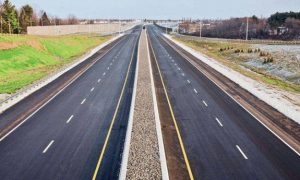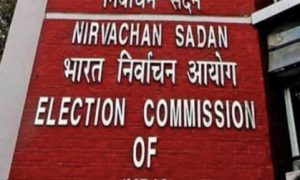01/7Will a current vaccine help COVID-19 recovered patients as well?
With Pfizer’s latest approvals, our fight against novel coronavirus pandemic looks a lot promising than before.
The recent roll-out will also pave way for other vaccine makers to seek authorisation and have enough doses ready for mass inoculation in the early months of 2021. Safe vaccination is also one of the ways to prevent COVID-19, as it will teach our body to learn immune reaction against the virus, and in cases spike up antibody count needed to root away the virus.
For the same reason, many experts opine that experimental COVID-19 vaccines may not really deliver real helpful benefits for people infected by COVID-19. Not a lot of clinical trials right now involve people who have had COVID-19, so it is difficult to ascertain if current vaccine doses would be safe or helpful for them.
If there may not be enough benefits, do people who have already been infected by COVID-19 require a vaccine shot? We weigh the pros and cons of the same.
02/7How does vaccination work?
Vaccines work to eliminate a particular disease and garner immunity by safeguarding the body and training it to recognize an infection pattern. This is usually done by using an inactive or similar version of the virus and training the immune system to recognize the strain and develop defences. This way, the body is better prepared to handle any future attacks and produce necessary antibodies.
03/7People with COVID-19 may already have required immunity
Developing immunity against COVID-19 is a difficult thing to decipher, right now.
People who have already been infected by COVID-19 have antibodies and systematic T-cell and memory B-cell levels protecting them from a future strike of infection. Reinfection, too, is rarely documented at this point. Hence, in a way, they have already have had the defence needed to prevent SARS-COV-2 from reentering their body.
Another reason why COVID-19 infected people may not require vaccines, albeit temporary is that a lot of people may have long-term sizeable systematic immunity against the virus.
Unlike previously thought, COVID-19 immunity may last longer than we thougtht in individuals, and for some, it may last for a lifetime. This would mean they have natural defences in their body to root out the infection if it were to strike them again. Therefore, a vaccine shot may not really be helpful to them right now.
04/7Current vaccine doses may not suit COVID-19 survivors, some experts say
An interesting thing to note is that almost none of the vaccine clinical trials involved volunteers who had contracted COVID-19 during the pandemic, which means that all those who were subjected to the vaccine benefits had no history of the infection in the first place. Therefore, there still is no conclusive evidence, if at all, a vaccine being developed right now will showcase the same effects on people having been infected by COVID-19, and the ones who do not have any sort of existing immunity against the same. More data will be required to check how the vaccine works in people who had symptoms and were sick with COVID-19.
At the same time, even though no evidence supports that a vaccine may not be safe for COVID-19 recovered patients, subjecting them to experimental shots might pose risks. A lot more research and additional trials will be needed going forward to deliver a suitable vaccine dose for the 55+ million people already been infected at this point.
05/7COVID-19 survivors and long haulers may react differently
Another problematic point of vaccinating COVID-19 survivors is not knowing how they will probably respond to the vaccine, considering, some survivors could be long haulers and posit symptoms in the long run. Hence, it could be potentially difficult to identify if at all the vaccine works on them or not.
The same way, those who develop chronic inflammatory conditions and reactions post COVID may not also display a safe or similar reaction to the vaccine shot being administered on them. They may fall into the category of people, for whom vaccines may not deliver the best results. This will be an issue in mass inoculation.
6/7Who might still need a vaccine on a priority basis, amongst recovered groups
Even so, just like with other diseases, people who have a comparatively higher risk of COVID-19 severity, or are over the age of 60 may still need a vaccine shot on priority, since they are more vulnerable to complications. It’s also the case with many other infections, such as the shingles vaccine, wherein people over 50 are still requested to take the shot, despite having enough immunity from the first bout of infection.
07/7Would a vaccine work for everyone? Who will get it first?
Another big challenge right now is to ascertain and separate people who have already had COVID-19 from the ones who are still at risk. Right now, as guidelines suggest, only those who are essential workers, senior citizens and immuno-compromised will be subjected to priority vaccine shots.
Developing, or administering a vaccine, for other groups, including the ones already infected by COVID-19 may come much later. Trying to predict and see how a vaccine performs on these groups will be a heavy task and hence, discretion is needed.





































